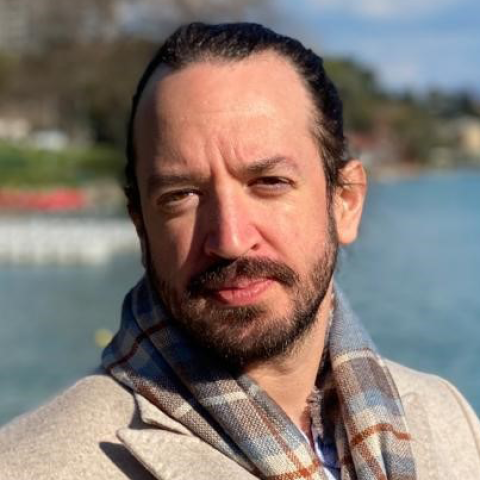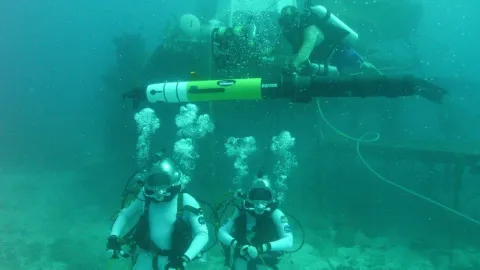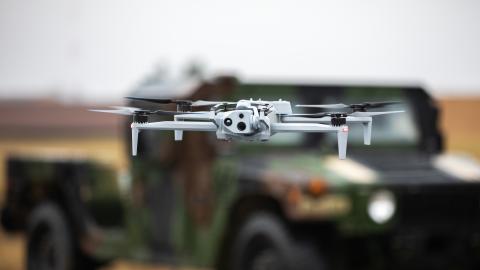Yesterday, Julie Bishop and Marise Payne met their US counterparts in Palo Alto, California, for the annual AUSMIN talks between foreign and defence ministers from the two countries. It took place a week after Donald Trump’s disastrous and ill-conceived meeting with Vladimir Putin when the leader of the free world expressed greater confidence in the word of the Russian President than the evidence accumulated by his own intelligence apparatuses — only to farcically claim to have misspoken, to try to limit the damage done. And then at the start of this week there were threats of war exchanged between Iranian President Hasan Rowhani and Trump.
AUSMIN focused on issues such as Chinese aggression, North Korean denuclearisation, trade disputes, regional infrastructure funding and holding Russia to account for its illegal actions. Serious stuff. But for some Australian commentators, we need to think bigger because we exist above an emerging fault line and an earthquake is about to hit.
They argue Trump is giving up on America’s seven-decade-old mantle as leader of the free world and its reliability as an ally and ¬security provider is shot. The President slapped down NATO at a time when Russian aggression is on the rise.
Next could be the undermining of allies in Asia, which would throw Australia into troubling and uncharted territory. The US-led democratic alliance system is unravelling. Perhaps better to prepare for that likelihood than be left unprepared and alone.
This narrative is premature and lacks deeper context. The US is not Russia or China. One man cannot quickly or easily undo what has been reinforced over many administrations. Indeed, much of what has happened since the Trump-Putin meeting in ¬Helsinki should remind Australians why our alliance remains the best bet in a troubled world — even with today’s occupant in the White House.
In many respects, many critics of Trump inadvertently reinforce the preferred reality created by the President himself: that he is the man and focusing on his actions, words and tweets is all the meaning there is. What Trump says and does is clearly consequential and a president can change the direction of the country’s policies.
But it is worth noting that the world’s bargain, including our ¬alliance, is with the liberal-democratic nation-state of the US and not with one man. If it were not so, Washington’s alliances in Asia and Europe would not have endured. Consider what occurred after Trump decided to take the word of Putin over his director of national intelligence, Dan Coats, on the issue of Russian interference in US elections.
Almost the entire American legislative and policy establishment condemned the President: elder Republican and Democratic congressmen; former presidents, secretaries, intelligence chiefs, and other senior officials; the vast and formidable think tank and analyst community. The news media turned on Trump. That included Fox News, which had stood apart in supporting him.
Trump was condemned by credible voices for being “treasonous”, “treacherous”, “naive”, ¬“absurd”, “frivolous” and a “fool”. It does not matter that the President’s rare backflip made him appear even more ludicrous and dishonest. The point is that the folly of a freewheeling President was checked and opposed by the country’s institutions, insiders and influencers.
Once the US has pursued and entrenched certain values, policies and mindsets across decades, one man cannot up-end it all at a whim. It is how the American constitution, and republic more broadly, is intentionally designed.
Incidentally, it is why ¬liberal democracies with strong and transparent institutions make the best and most reliable allies. Putin may have won the day but not yet more than that.
Where do we go from here? We should not view Trump as ¬stupid or a genius. The Australian’s foreign editor Greg Sheridan is correct that Trump does some very good things mixed with some very bad. Only Trump could have compelled China and Russia to agree to unprecedented sanctions against North Korea, only to then give away much of the leverage he had acquired for no benefit when he met Kim Jong-un in Singapore. His take-down of Germany for ¬security free-riding and agreeing to the Nord Stream 2 gas pipeline, which enhances Russia’s leverage over Europe, was brutal but timely, only for the trip to end with the Helsinki disaster.
Second, following only the ups and downs of Trump is to enter into the President’s confected universe, which poorly reflects the reality of the US and its role in the world. If changing Trump’s mind on some of his foolish urges is next to impossible, then focus on the other institutions and individuals that make up the country and its system of decision-making and continue to engage those entities. AUSMIN is part of that process, as is shaping the views of Trump’s executive appointees, American legislators, existing and former officials, the thousands of people who make up the think tank and policy establishment, and American media.
Finally, the defining grace of representative democracy is that leaders are never in power forever. Some take the good and bad and make the best of it — which is what we ought to do today — and others have already written off the Trump era as a calamity.
Either way, the case that the end of American leadership is nigh has barely been made.














